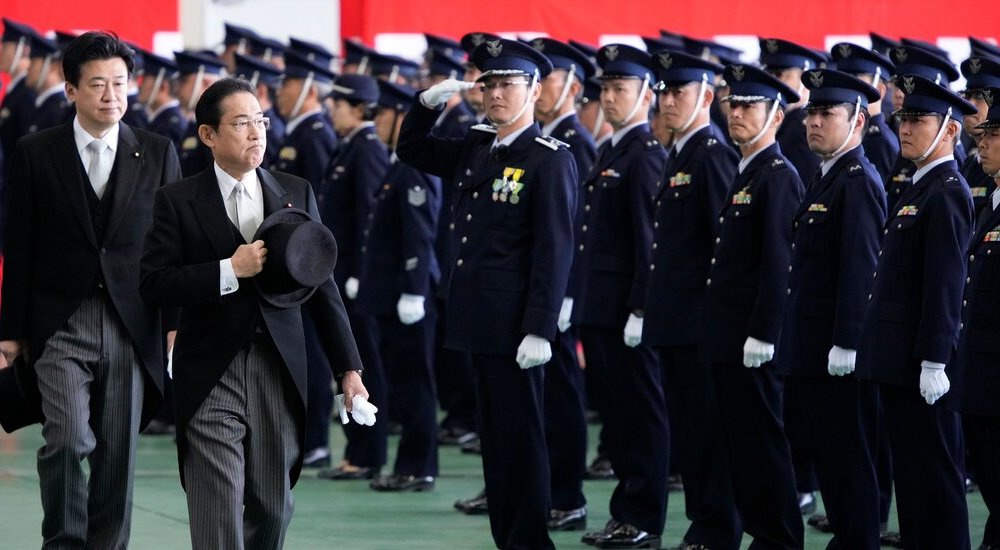This week, Mr. Kishida is set to attend a NATO meeting in Washington marking 75 years since the alliance’s founding. NATO officials have said the summit will focus on boosting allied defense and strengthening partnerships in the Indo-Pacific region.
“If you can’t raise taxes and can’t increase debt, you’re stuck with very few options beyond pursuing deeper multilateral coordination,” Mr. Grady said, referring to Japan’s collaboration with the United States, Australia and other allies on initiatives like joint maritime exercises and trainings.
On Monday, Japan and the Philippines signed an agreement that would boost their ability to perform joint military exercises. That came after the United States, Japan and South Korea held three-day joint air and naval drills late last month in the East China Sea. The exercise, called “Freedom Edge,” was intended to boost readiness against North Korea’s missile and nuclear threats.
North Korea responded to the drills by launching two ballistic missiles last week. It vowed an “overwhelming” response to what state media described as a relationship among Japan, the United States and South Korea that was beginning to resemble “the Asia version of NATO.”














































